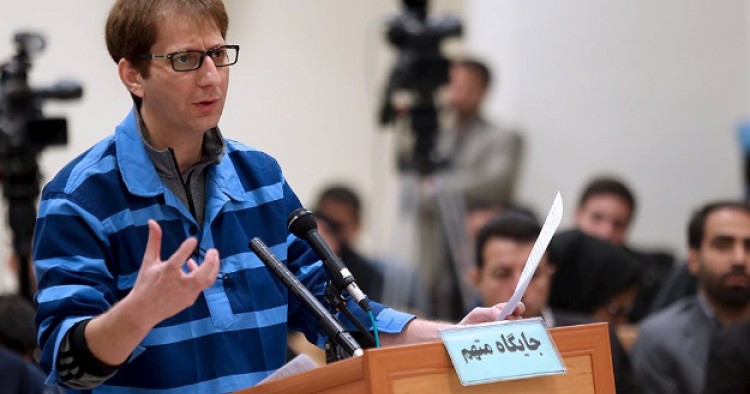The Iranian media reports that the country’s Supreme Court has upheld the death sentence for Babak Zanjani, an Iranian billionaire convicted in a high-profile oil corruption case. In March, a court in Iran had convicted him of being “corruptor on earth” and sentenced him to death.
Zanjani played a key role in helping the government of Mahmoud Ahmadinejad to evade international sanctions by selling Iranian oil in the black market from Malaysia to Turkey. But he was arrested in 2013 as part of new Iranian President Hassan Rouhani’s crackdown on “financial corruption,” particularly “privileged figures” who had “taken advantage of economic sanctions” under his predecessor. Both the United States and the European Union had blacklisted Zanjani for assisting Tehran to circumvent sanctions.
Iranian judiciary officials say Zanjani owes the government $2.7 billion. They add that his business and private assets account for only a third of the debt, and that he has not sincerely cooperated with the authorities to recover them.
It is worth noting that Rouhani and his oil influential oil minister, Bijan Zangeneh, oppose the death sentence for Zanjani, reasoning that his hanging would hinder the recovery of large sums of money needed to shore up the economy. They also think that keeping the business tycoon alive might help expose the underground criminal network and powerful regime figures that helped Zanjani earn billions of dollars in the illicit market. “People want to know how and with whose permission did he sell the oil? Why did they allow him? Where is the money?” Rouhani said earlier this year. And Zangeneh has likened Zanjani to a “black box” - a device installed on an aircraft that records data and helps investigators if the plane crashes.
Senior officials from Ahmadinejad’s intelligence ministry and the Islamic Revolution Guards Corps’s intelligence bureau are said to have been involved in the oil scandal. But so far, they appear to be immune from prosecution and accountability.
The Middle East Institute (MEI) is an independent, non-partisan, non-for-profit, educational organization. It does not engage in advocacy and its scholars’ opinions are their own. MEI welcomes financial donations, but retains sole editorial control over its work and its publications reflect only the authors’ views. For a listing of MEI donors, please click here.













